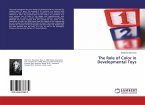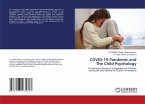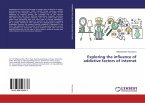This cross-sectional comparative study was conducted between January and April 2014. We studied two different cultural contexts: Norway as a low prevalent country concerning HIV/AIDS and South Africa as a high prevalent one. The objective was to explore the relationship between knowledge, attitudes and sexual risk behavior related to HIV/AIDS. We used the KAP model as a theoretical framework. The results showed that the Norwegian students had higher levels of knowledge and more positive attitudes towards HIV/AIDS compared to the South African students. In Oslo age was a statistically significant predictor of condom use wheras number of sexual partners was an important predictor of condom use in Cape Town. The study may serve as a critique of the theoretical framework we used. A cultural perspective on the global HIV/AIDS epidemic is profitable, but in future research more complex models will be more suitable to explain variations in concepts and people's underlying motives.
Hinweis: Dieser Artikel kann nur an eine deutsche Lieferadresse ausgeliefert werden.
Hinweis: Dieser Artikel kann nur an eine deutsche Lieferadresse ausgeliefert werden.








